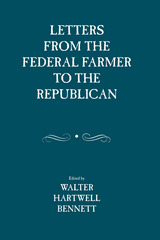
This book examines two eras of Chinese history that have commonly been viewed as periods of state disintegration or retreat. And they were—at the central level. When re-examined at the local level, however, both are revealed as periods of state building. In both the Nanjing decade of Guomindang rule (1927-1937) and the early post-Mao reform era (1980-1992), both national and local factors shaped local state building and created variations in local state structures and practices. This book focuses on one key area of the state, taxation and public finance, to trace the processes of local state building in these two eras. Using the records of local tax and finance offices in the Tianjin area and in Guangdong province, the author maps the process by which these county-level offices grew.
This book highlights variation in local state structures and practices between localities and between the central and local governments. As the author shows, this variation is important because it results in regional differences in state-society relations and affects central state capacity in terms of the local state's ability to implement central state policies as well as its own.

The Federal Farmer’s letters were written in opposition to the Constitution in the form in which it had come from the Federal Convention of 1787. Their immediate objective was to secure amendments to the Constitution before it was ratified by state convention. But the letters are valuable also for the basic political philosophy that they represent, specifically, the political philosophy of the revolution and the Bill of Rights. This philosophy stresses principles of federalism and republicanism and exemplifies the liberal idealism that took root in America during the Revolutionary War era.
READERS
Browse our collection.
PUBLISHERS
See BiblioVault's publisher services.
STUDENT SERVICES
Files for college accessibility offices.
UChicago Accessibility Resources
home | accessibility | search | about | contact us
BiblioVault ® 2001 - 2024
The University of Chicago Press









